These 32 foods to eat during menopause will nourish your body and mind
These are the best foods to eat during menopause, to support you through this important life stage...
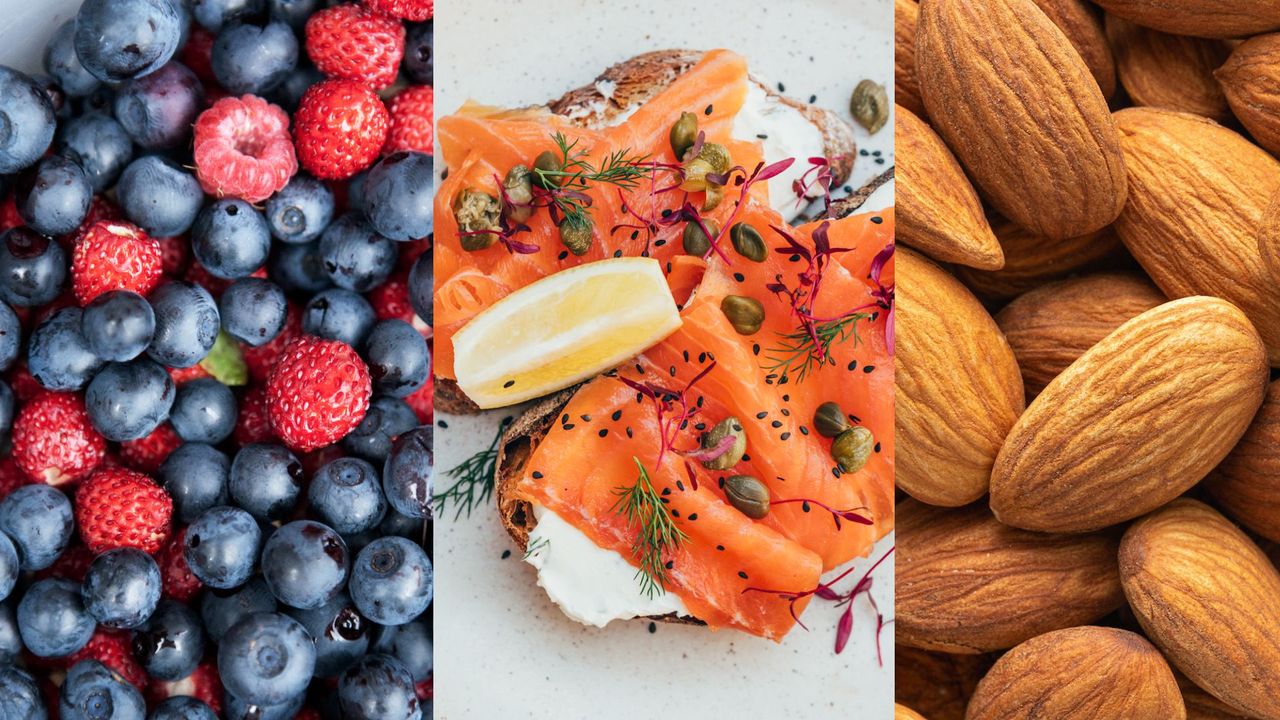

While consuming a healthy, balanced diet is important at any time of life, there are foods to eat during menopause that can make all the difference for nourishing your body and mind.
During this life stage, hormonal changes take place that can cause certain health issues - and there's evidence that the contents of your plate can help alleviate symptoms and have a protective effect for the future.
During menopause, women can experience hormonal changes that can increase their risk of osteoporosis, heart disease and weight gain, while also causing hot flashes, mood changes and brain fog. Consuming a diet rich in nutrients like calcium, vitamin D, omega-3s, fibre, antioxidants and probiotics can help support optimal female health during this transitional period.
What's more, from oily fish and seeds to dairy items and grains, there are plenty of delicious as well as nutritious options to stock your fridge and cupboards with during midlife. What are you adding to your shopping list?
32 foods to eat during menopause
1. Salmon
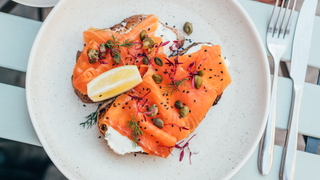
Salmon is packed with omega-3 fatty acids, particularly EPA and DHA, which support heart health, reduce inflammation and may alleviate symptoms like depression and anxiety often associated with menopause. The oily fish is also a high-quality source of protein, essential for maintaining muscle mass and metabolic function, as well as vitamin D - crucial for calcium absorption and bone health, which helps prevent osteoporosis.
2. Flaxseed
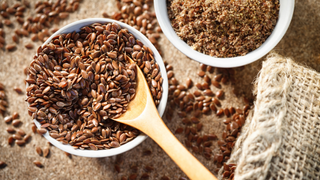
Sprinkle some flaxseed on your yoghurt or salad. It is important during this period of life due to its high content of lignans and alpha-linolenic acid (ALA), a plant-based omega-3 fatty acid. Lignans act as phytoestrogens, which may help balance hormone levels and alleviate symptoms such as hot flashes, while ALA supports heart health, reduces inflammation and can contribute to mood stability. Flaxseed is also rich in fibre, aiding in digestion and promoting a feeling of fullness, which can help manage weight at this time.
3. Cheese
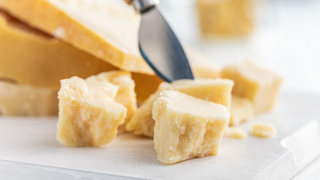
Cheese is a rich source of calcium and vitamin D, crucial for maintaining bone health and reducing the risk of osteoporosis, which becomes more pertinent due to menopause. It also provides high-quality protein, which supports muscle maintenance and metabolic function, and contains B vitamins - which are important for energy production and nerve function.
Sign up for the woman&home newsletter
Sign up to our free daily email for the latest royal and entertainment news, interesting opinion, expert advice on styling and beauty trends, and no-nonsense guides to the health and wellness questions you want answered.
4. Whole wheat bread
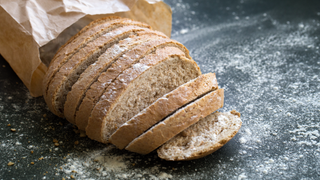
Swap your white bread for the whole wheat kind. It is high in dietary fibre, which supports digestive health, helps manage weight and regulates blood sugar levels. What's more, it also provides essential vitamins and minerals, including B vitamins - such as folate and niacin - which are important for energy metabolism and cognitive function.
5. Mackerel
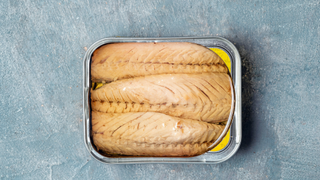
Mackerel should become a kitchen staple at this time of life due to its high content of omega-3 fatty acids, particularly EPA and DHA, which support heart health, reduce inflammation, and may alleviate symptoms like depression and anxiety common during menopause. The oily fish is also a good source of high-quality protein, essential for muscle maintenance and metabolic function, and provides vitamin D, crucial for calcium absorption and bone health - helping to prevent osteoporosis.
6. Yoghurt
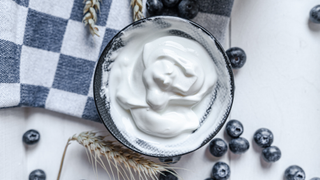
After some breakfast inspiration? Yogurt is a beneficial food for women during menopause due to its nutrient density. It is rich in calcium and vitamin D, essential for maintaining bone strength and reducing the risk of osteoporosis, and also provides probiotics - beneficial bacteria that support gut health and may help alleviate digestive issues common during menopause. Similarly, it is a good source of high-quality protein, which supports muscle maintenance and metabolic function.
7. Milk

Milk is a primary source of calcium and vitamin D, essential for maintaining bone density and reducing the risk of osteoporosis - which is heightened due to menopause. The dairy drink also provides high-quality protein, crucial for muscle maintenance and metabolic function, and contains vitamin B12 - important for nerve health and energy production.
8. Anchovies
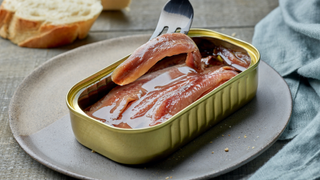
Not only do they add delicious salty flavour to meals, but anchovies also serve up plenty of omega-3 fatty acids - which support heart health, reduce inflammation and may help alleviate symptoms like depression and anxiety common during menopause. They also provide calcium and phosphorus, important minerals for bone health, including reducing the risk of osteoporosis.
9. Soy milk
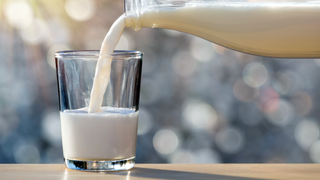
Soy milk is high in phytoestrogens called isoflavones, which can help balance hormone levels and alleviate symptoms such as hot flashes and mood swings. It is also typically fortified with calcium and vitamin D, essential for maintaining bone density and reducing the risk of osteoporosis. The high-quality protein, additionally, supports muscle maintenance and metabolic function.
10. Hemp seeds
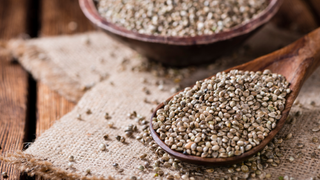
Not only do hemp seeds add extra texture to your dishes, but they are also high in plant-based protein - providing essential amino acids for muscle maintenance and metabolic function. They are also rich in omega-3 and omega-6 fatty acids, which support heart health, reduce inflammation and may alleviate symptoms like joint pain and mood swings during menopause.
11. Eggs
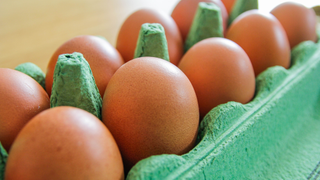
Eggs are a brilliant source of high-quality protein, essential for muscle maintenance and metabolic function. They also serve up vitamins such as B12, important for energy production and nerve health, and vitamin D - crucial for calcium absorption and bone strength. Additionally, they contain choline, which supports brain function and memory.
12. Brussels sprouts
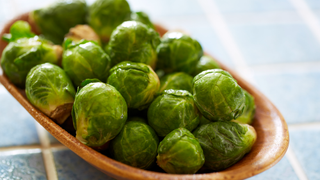
While they may be associated with the festive season, Brussels sprouts can provide a nutritional boost all year round. They are rich in vitamin K, which supports bone health and may help reduce the risk of fractures, and also provide vitamin C, an antioxidant that boosts immune function and supports collagen production for skin health. Additionally, the vegetable is also a good source of fibre, aiding in digestion and promoting a feeling of fullness, which can help manage weight during menopause.
13. Quinoa
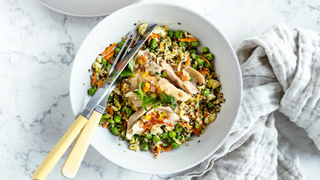
Quinoa is a complete protein, providing all essential amino acids necessary for muscle maintenance and overall metabolic health. It is also high in fibre, which aids in digestion, promotes satiety and helps regulate blood sugar levels - supporting weight management during menopause. What's more, the grain contains minerals like magnesium and phosphorus, which are important for bone health and reducing the risk of osteoporosis.
14. Brown rice
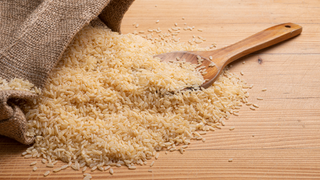
Swap your white rice for brown. It contains more fibre, which supports digestive health, aids in weight management and helps regulate blood sugar levels. The grain also provides essential minerals such as magnesium and phosphorus, crucial for bone health and reducing the risk of osteoporosis, along with B vitamins - including folate and niacin - which support energy metabolism and cognitive function.
15. Barley
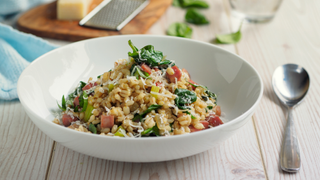
Barley is a great source of dietary fibre, for supporting digestive health, aiding in weight management and helping regulate blood sugar levels. The grain also provides essential minerals like magnesium and phosphorus, crucial for bone health and reducing the risk of osteoporosis. Additionally, it contains B vitamins, such as folate and niacin, which support energy metabolism and cognitive function.
16. Peanuts
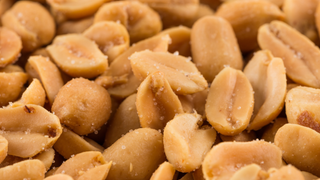
Feeling hungry? Reach for a handful of peanuts. They are rich in protein - which supports muscle maintenance and metabolic function - and also provide healthy fats, including monounsaturated and polyunsaturated fats, which help maintain heart health and reduce inflammation. Similarly, they are a good source of fibre, aiding in digestion and promoting satiety, which can help manage weight during menopause.
17. Strawberries
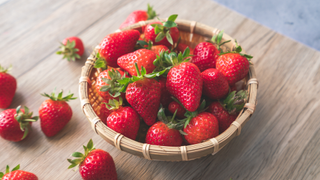
Strawberries are a great food to stock up on during menopause. They are rich in vitamin C, which boosts immune function and supports collagen production for skin health. The fruit also provides dietary fibre, aiding in digestion and promoting a feeling of fullness, which can support weight management during menopause. The fact that they are low in calories and sugars also makes them a healthy snack option.
18. Oats
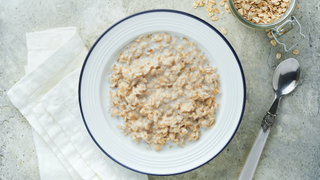
On a chilly morning, there's nothing like a warming bowl of porridge - and your body will thank you in other ways. Oats are rich in soluble fibre, which helps lower cholesterol levels, regulates blood sugar and supports digestive health. They also serve up complex carbohydrates, promoting sustained energy levels and helping to manage weight, and are a good source of vitamins and minerals such as B vitamins, iron and magnesium - which support energy production, cognitive function and bone health.
19. Chickpeas
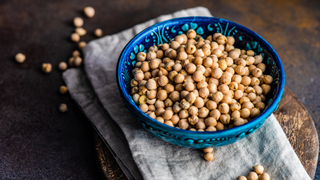
Chickpeas are high in protein and fibre, which aid in muscle maintenance, metabolic function and digestive health. The popular legumes provide complex carbohydrates that promote sustained energy levels and help manage weight. They are also rich in minerals like iron, magnesium, and potassium, which support bone health, reduce fatigue, and help regulate blood pressure.
20. Dates
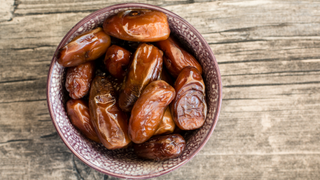
After a quick nutritious boost? Reach for dates. They are high in natural sugars, providing a quick source of energy that can help combat fatigue, and are also rich in fibre, supporting digestive health and helping to regulate blood sugar levels. The fruit also contains vitamins such as vitamin B6 and pantothenic acid, which contribute to energy metabolism and reduce feelings of tiredness.
21. Berries
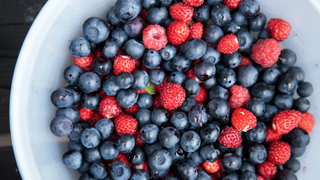
Berries are rich in antioxidants, such as vitamin C and polyphenols, which help reduce inflammation and oxidative stress. They are low in calories and carbohydrates but high in fibre, aiding in digestion, supporting weight management and regulating blood sugar levels. They also contain vitamin K, which supports bone health, and potassium - important for heart health and blood pressure regulation.
22. Broccoli
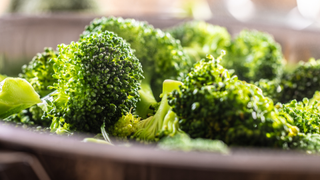
If you're looking for a nutritious vegetable for dinner, you'd do well to add broccoli to your plate. The vegetable is high in dietary fibre, which supports digestive health and helps manage weight, and it's also rich in vitamins C and K - essential for immune function and bone health, respectively. It also contains folate, which supports energy metabolism, and potassium - which is important for heart health and blood pressure regulation.
23. Grapes
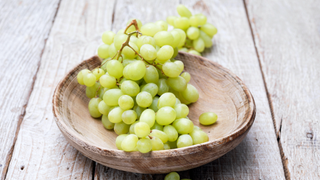
Grapes are high in antioxidants like resveratrol, which evidence has found can help reduce inflammation and support heart health. They also contain vitamins such as vitamin C, which boosts immune function, and vitamin K - crucial for bone health. They also provide dietary fibre, promoting digestive health and helping to regulate blood sugar levels.
24. Avocado
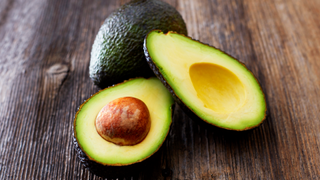
Give your toast a nutritious upgrade with avocado. The fruit is high in monounsaturated fats, which support heart health and may help reduce inflammation, according to research. It is also a good source of fibre, aiding in digestion and promoting satiety, and serves up vitamin E - important for skin health and immune function - and vitamin K, crucial for bone health.
25. Kale
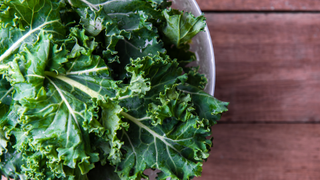
Kale is exceptionally rich in vitamins K, A and C, which support bone health, immune function and skin health respectively. The vegetable also provides folate, essential for energy metabolism and cognitive function, and it is high in fibre - which aids digestion and promotes satiety, which can help manage weight during menopause.
26. Almonds
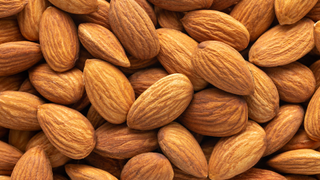
Grazing on almonds will provide an excellent source of healthy fats, including monounsaturated fats and omega-3 fatty acids, which support heart health and reduce inflammation. They are also high in protein and fibre - which promote satiety, aid in weight management and support muscle maintenance - and provide essential vitamins and minerals such as vitamin E, magnesium and calcium, which support bone health and immune function.
27. Chicken
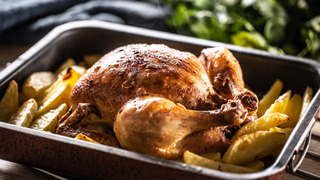
Chicken is a source of high-quality protein, essential for muscle maintenance, immune function and metabolic health. It also provides vitamins such as B6 and B12, which support energy production and nerve function and is low in saturated fat -compared to red meats - which promotes heart health. Additionally, it contains minerals like iron and zinc, important for energy metabolism and immune function.
28. Plums
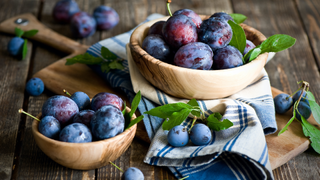
They might not be your first choice from the fruit bowl, but plums are high in vitamins A, C and K - which support immune function, skin health and bone strength, respectively. They are also a good source of dietary fibre - aiding digestion and promoting satiety - and contain antioxidants such as polyphenols, which research has found may help reduce inflammation and protect against oxidative stress.
29. Apples
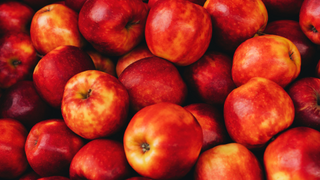
Apples are rich in dietary fibre - which promotes digestive health, aids in weight management and helps regulate blood sugar levels. The fruit is also packed with antioxidants, including vitamin C, which supports immune function and collagen production for skin health. Additionally, it provides natural sugars for quick energy - making it a great snack option.
30. Green tea
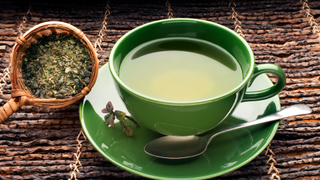
Swap your mug of coffee for some green tea. It is rich in antioxidants - particularly catechins like EGCG - which there's evidence can help reduce inflammation and protect cells from oxidative stress. The hot beverage also contains caffeine, which can provide a mild energy boost and improve alertness.
31. Chia seeds
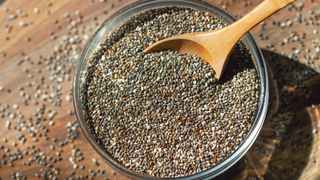
Chia seeds are rich in fibre - serving up both soluble and insoluble fibres that support digestive health and help regulate blood sugar levels. They are also high in omega-3 fatty acids, which help reduce inflammation and support heart health, and provide protein - essential for muscle maintenance and metabolic function. What's more, they contain calcium, magnesium and phosphorus, which support bone health and may help reduce the risk of osteoporosis.
32. Black tea
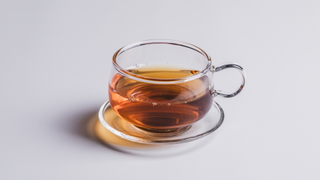
For an afternoon pick-me-up, make yourself a cup of black tea. It contains antioxidants, such as theaflavins and catechins, which help reduce inflammation and protect cells from damage caused by free radicals. The drink also contains caffeine, for a mild energy boost, and may help support cardiovascular health by promoting healthy cholesterol levels and improving blood vessel function.

Lauren is a freelance writer and editor with a decade of print and digital journalism experience. While she specialises in covering health and wellness topics - ranging from nutrition and fitness, to women’s health conditions and mental wellbeing - she has written across a diverse range of lifestyle topics, including fashion, beauty, interiors and travel.
In addition to writing for Woman & Home and sister title Homes & Gardens, Lauren's work has also been published by Women’s Health, The Times, Daily Telegraph, Elle, Cosmopolitan, The Guardian, Marie Claire, Body + Soul, Stylist, Glamour, Grazia, Red, Dazed Digital, Yahoo Life, The Sun’s Fabulous, Get The Gloss and Hello! among others.
-
 Do you fancy a tweakment? Two women debate for and against injectables
Do you fancy a tweakment? Two women debate for and against injectablesIf you’ve ever wondered whether injectables are for you, here’s what two women have to say about their experiences
By Zoe West Published
-
 Why is Jen filming Nic in Am I Being Unreasonable?
Why is Jen filming Nic in Am I Being Unreasonable?Although Am I Being Unreasonable? raises many questions, the one viewers really want answers to is: Why is Jen filming Nic in the show? We have some theories
By Lucy Wigley Published